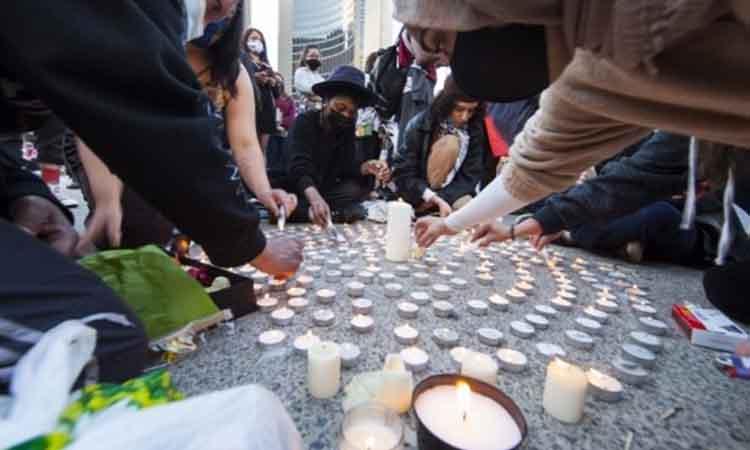The Cowessess First Nation in Saskatchewan, Canada, has announced a preliminary discovery of 751 unmarked graves at a cemetery near a former indigenous residential school.
The school named Marieval Indian Residential School operated from 1899 to 1997 in the area where Cowessess is now located, about 140 km east of Regina, the capital city of Saskatchewan province, reports Xinhua news agency.
Cowessess Chief Cadmus Delorme told a virtual news conference on Thursday that technical teams started using ground-penetrating radar early this month to locate unmarked graves in an area of 44,000 square metres, reports Xinhua news agency.
Also Read | Joe Biden says he has reached deal with bipartisan senators on infrastructure plan
Delorme said it was not immediately clear if all of the unmarked graves belonged to children.
He noted that there may have at one point been markers for the graves, saying the Roman Catholic church, which oversaw the cemetery, may have removed markers at some point in the 1960s.
He said technical teams were unable to confirm if there were more remains but said there were 751 "recorded hits" at the site and noted there could be more than one set of remains at each "hit".
Delorme said the technical teams will be able to provide a verified number in the coming weeks and his community wants to put names to the people in the graves in the coming months and will treat the site "like a crime scene".
Also Read| 3 dead, 99 missing in US Florida building collapse
Canada's Federation of Sovereign Indigenous Nations (FSIN) Chief Bobby Cameron said on Thursday that what happened was a "crime against humanity" and that the findings were just the start in terms of finding unmarked graves in Saskatchewan province.
"There are thousands of families across our Treaty territories that have been waiting for their children to come home. Saskatchewan had the highest number of residential schools and highest number of survivors."
He said FSIN will work to get every site in Saskatchewan -- schools, sanatoriums and other such locations -- searched and victims in those locations identified.
Last month, the Tk'emlups te Secwepemc First Nation in British Columbia announced the discovery of a burial site near the former Kamloops Indian Residential School that preliminary findings indicate contains the remains of 215 children.


















